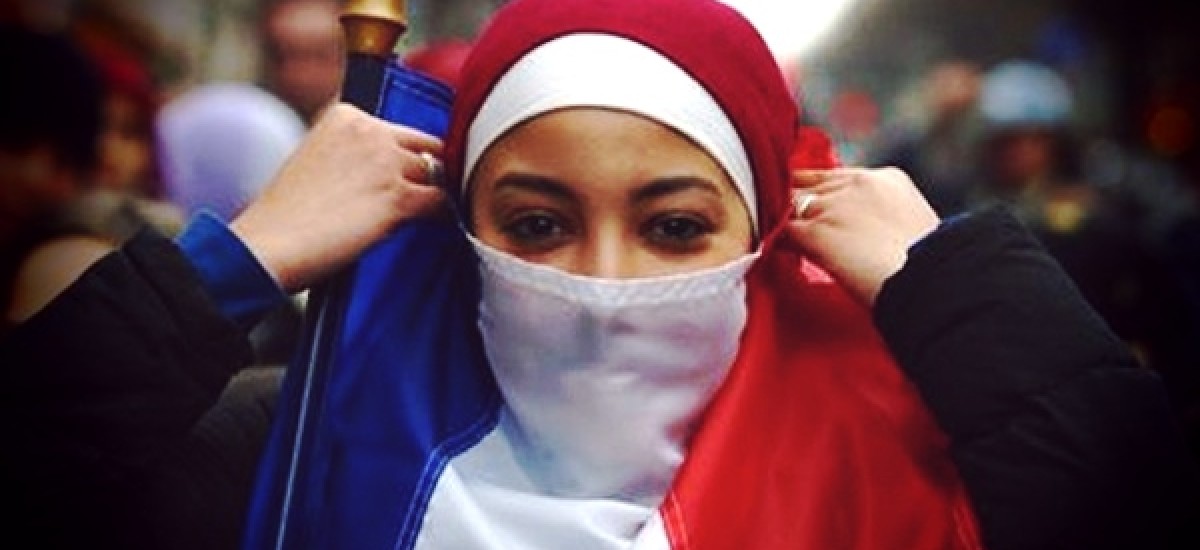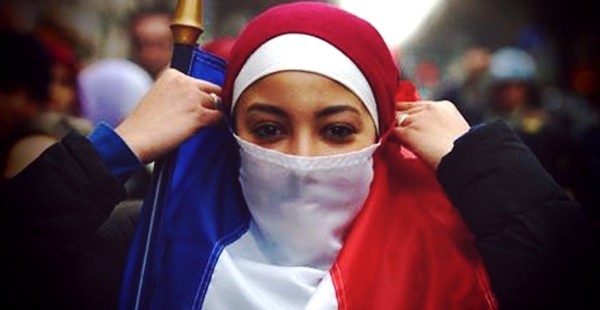‘I think someone forced you to wear this. I will help you. Here is a fine of €200’. Sounds stupid? Well that’s the bizarre logic of the French rescue plan/law to help around 2000 Muslim women get out of the burka. Whilst prostitution and pornography flourish it is the burka that is banned. The debasement of women in the sex industry is well known but it is the attire of Muslim women that inspires French chivalry. I doubt anyone’s being fooled here – this has nothing to do with helping women but is another instance of the exploitation of women and women’s issues.
The ban is ridiculous. It’s another blemish in the deteriorating relationship between European Muslims and White Europe. But why is Europe getting all jittery about what Muslims wear or to state another example, how they build their mosques? In Switzerland they banned minarets when there were only four in the country. Minarets and domes are fairly controversial construction in other European countries as well. No doubt the burka or the niqab are not mainstream behaviour. Yet European society has enough non – mainstream conduct. Like the men who dress up as women or those who don’t want to wear anything at all. Then why is it that European society finds anything that is ‘Islamic/Muslim’ uncomfortable? The answer may be found in Europe’s historic discomfort with ‘the other’ particularly when ‘the other’ represents a competing ideology. Whilst a nudist at the annual nudist parade does not challenge mainstream European ideology – a Muslim woman in a burka is symbolic of an alternative and in the eyes of the right – a competing ideology.
The burka ban is a good example of this ‘competing ideology discomfort’. For it is not in the number of women i.e. 2000 in a population of five to six million Muslims that troubled the conservatives in France but that these women were second or third generation French citizens and some were white French converts. The ‘cancer’ it seemed was spreading. Those born and exposed to French culture were opting for the alternative.
This is not mere conjecture. An expert appointed by the UN Committee on the Elimination of Discrimination has found the present attitude and practices of the Sarkozy government as similar to the Vichy regime that collaborated with the Nazi German forces which occupied France during the Second World War. The Holocaust was rooted in the fear of ‘the other’. Popular narrative pins the Holocaust as a creation of Hitler and Nazi Germany but there were Nazis all over Europe. This included France and Netherlands – another country where Muslims in particular and migrants minorities in general have a troubled relationship with the majority.
A few weeks back I had to go through immigration at Heathrow. The immigration officer thought fit to tell me how well qualified he was for the job. He even had a research doctorate. I was naturally curious as to what he was doing in immigration at Heathrow – with a PhD. He replied that he was working to protect his country. What’s the point of the story? It is that he had distinct South Asian features and spoke with a South Asian accent. I am quite certain that his ancestors were not living in England when William the Conqueror marched through. Yet this was his country and he was defending it with pride. However like many citizens with migrant backgrounds, so long as he clings to his migrant roots – he would be as much an outsider as me. The Muslim versus Europe debate takes place in the context of ‘the immigration problem’. Migrants need to integrate they say. Yet most of the women who wore the burka like the majority of Muslims in France were citizens of that country. The question is when do you stop being an immigrant and become a citizen or is it never?
The insecurity is heightened when these parallel ideologies are practiced in parallel societies or ghettos. There are ghettos in every major European capital. If you take London for example there are certain areas which are densely populated by a particular ethnic, racial or religious group – like Brick Lane or Brixton. Who creates these barriers? How do people choose where they live? I am yet to meet a Bengali who can afford to live in Hampstead but who still chooses Whitechapel. That then is the reality. The latest figure to hit headlines is that 94.7% of school head-teachers in 21,600 schools in England are White British. This is just one industry where there is clear evidence of institutionalised racism that prevents other ethnicities from rising to the top. Examples for other industries are also available and well known. In France the unemployment amongst North African – Arab communities was thrice that of Caucasian communities. No one lives in ghettos out of choice but ghettos reflect systemic and institutionalised prejudices against particular communities which hamper their mobility up the social and property ladder.
Europe’s discomfort with the burka stems also from a very colonial mentality which is that ‘what is good for us is good for all’. The corollary of that idea is the idea that only those who are like us are civilised and the rest – barbarians. Thus colonialists attacked, ravaged and destroyed indigenous communities and cultures all over the world under the pretext and goal of civilising them. Many cannot fathom why women in modern Europe opt for the hijab or niqab which to them symbolises oppression and inequality. A Muslim woman who wears an Islamic attire is portrayed as being gullible, enslaved, brainless and opinion less. When she says she feel actually empowered – they look at her with sympathy and scepticism. In the entire debate on the burka, the mainstream Muslim voices were never represented. I doubt if even twenty of the 2000 women who wore the attire were consulted. There is nothing more degrading for political decisions affecting women to be made without prior consultation.
Despite the disgust and the disappointment, the fact remains that Muslim communities will have to continue to live with Europe. The only way forward would be keep working at building partnerships and removing distrust through the process of engagement and dialogue.


